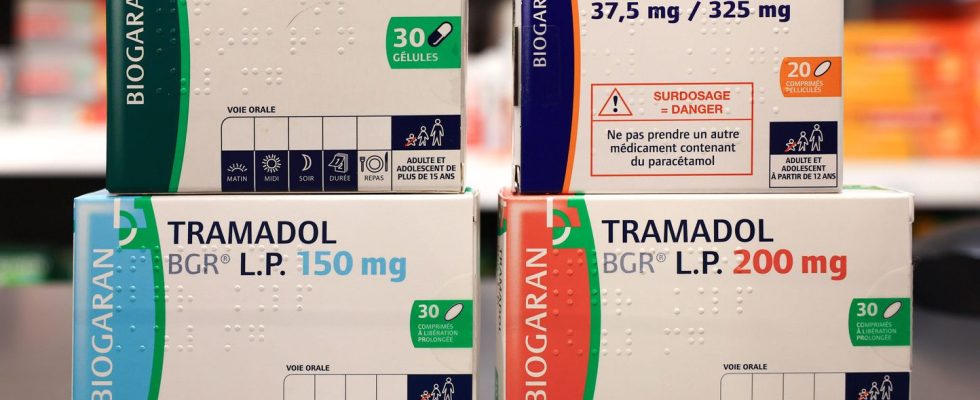After “made in Bangladesh” in the ready-to-wear aisles, soon “made in India” in pharmacies? The possible sale of the French generic leader Biogaran to Torrent Pharmaceuticals or Aurobindo Pharma, two Indian groups, opens the door wide to this possibility. Today, the group is only present on the French market, and 50% of its production is located on the national territory, as recalled Capital. A snub for Emmanuel Macron, who announced a relocation plan for the pharmaceutical industry a few months ago.
At a time when ethical issues are gaining ground in the fashion and food industry, with a greater sensitivity to short circuits, can Biogaran go against this movement? For Clémence Marque, pharmacist and lecturer graduated from HEC, this model is not entirely applicable: “Biogaran does not have its own factories, they only have contracts with subcontractors. If the group that buys them has its factories in India, it will be easy for them, they will only change suppliers. »
A “danger of depending on non-European countries”
This model of subcontracting of the pharmaceutical industry is, according to her, the source of the problem. “It’s globalization at work in the end,” she observes. An observation in which Bernard Bégaud, professor emeritus in medical pharmacology at the University of Bordeaux, sees above all a problem of sovereignty. “EU member states do not understand the danger of depending on non-European countries for the production of essential medicines,” he growls. Anti-cancer treatments, medications for diabetes or cardiovascular problems… “We depend 80% on countries outside Europe, in a tense geopolitical context. We saw Vladimir Putin’s blackmail with gas or cereals, imagine with medicines…”
Between a China which “could prioritize its population which has more and more access to care and is already facing ruptures” and India which has moved closer to Russia, seeing our medicines go to Asia has quite a taste of risk. Even more so with the conflict in Israel which is becoming regionalized; beyond the pollution generated by the transport of generics currently produced in France, the growing insecurity in the Red Sea could jeopardize supplies. “This is not theory, in 2019, there was six months of discontinuation of one of the two major medications for bipolar disorders, this destabilized the treatments,” insists Bernard Bégaud.
“When you repress the human cost, obviously it’s cheaper”
The problem is that French manufacturers can hardly compete with Chinese and Indian factories. “There is unfair competition, just like for farmers. Production conditions at a social and environmental level do not correspond to European standards,” denounces Clémence Marque. Beyond salaries, “it’s mainly about working conditions and social protection” that it’s problematic, points out Bernard Bégaud. “When you repress the human cost, when there is no 35 hours, no health insurance contributions, obviously it is cheaper,” he adds, highlighting the “problems of Recurrent ‘work accidents’ in India.
One could object that, in 2023, Biogaran could boast of growth of 8.8%, and therefore does not really need to produce its drugs elsewhere. But a good part of the products have a negative margin. “There is something truly scandalous about the prices of medicines in France, it is that on the one hand you have treatments from new technologies at crazy prices, and on the other hand 90% of essential medicines are worth a coin,” warns Bernard Bégaud. Everything starts from a “tacit agreement” between the State and the pharmaceutical industry, he says: “we promote innovation, but you will no longer make profits on old drugs. “The State, however, has gradually cut back on the money it still put into these drugs, so much so that they are becoming “unmanufacturable” here, for the one who already warned in his book France sick of medicine.
The ethical medicine is not in the hands of the patient
Finally, the two experts interviewed by 20 minutes are reassuring in terms of the quality of medicines. “There is a whole process, standards on doses, granularity…”, specifies Bernard Bégaud. For products intended for the French market, “there are controls under the supervision of the ANSMincluding in Chinese factories.”
Between geopolitical risk, pollution and working conditions of manufacturers, we would still be widely tempted to want to take “ethical” care. But “at the patient level, we don’t really have a choice,” recalls Clémence Marque. Even pharmacists order “from a catalog and cannot ask where this or that medicine is produced”. For the pharmacist, the ethical question lies above all “at the level of public policies or hospital purchases”. No need to feel guilty when buying your box of Doxylamine as much as when you buy Shein, therefore.

